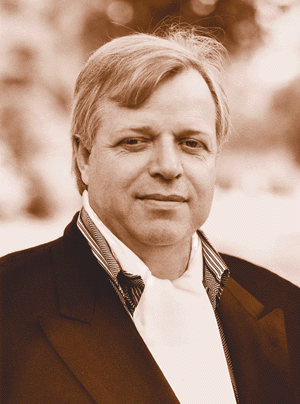Harmonic Information as Medication for Education
Reducing the Undesired
Side-effects of
Conventional Education

PETER HUEBNER
The Head of
Micro Music Laboratories®
on the Situation in
Education – an Interview
This interview follows the earlier interviews on the future of pharmaceutics and education.
It sees the problems of conventional education as being purely medical problems.
Music & Nature: Mr. Huebner, you are a classical composer and for almost ten years you have been producing music in your Micro Music Laboratories® which is described as a ‘preparation’ and serves for medical purposes. Also, there are already a good number of scientific studies available which have proven that, nowadays, your medical music preparations are quite often more successful than pharmaceutical preparations.
Now since quite some time you address the problems of education too. We would like to put a number of questions to you on this subject.
Question: How, on principle, are you disposed towards education and its results?
Peter Huebner: For generations already, educational experts have been endeavouring to impart, to the future generations, knowledge which enables them to become successful for both their own benefit and for the benefit of the public at large.
Over the centuries, scientific criteria have gained acceptance over the non-scientific, i.e. the artistic, ideological and religious criteria.
In schools and universities today, the natural science disciplines are considered the most important for general professional success, whilst religion, philosophy, sociology and art stand more in the shadows.
This development is certainly largely due to the fact that the natural science disciplines produce professional groups whose achievements can be objectively assessed: they can be measured. And, also generally in the scientific professions, the criteria of objective scholarliness and objective assessment of achievement play the decisive role.
As such, the objective sober scientific way of thinking has conquered the achievement-orientated civilisations of the world, and sport is only held in such high regard internationally, way above the arts and religions, because sporting achievements have become objectively measurable.
“It is my endeavour in the field of education to move the phenomenon of achievement into the realms of the objectively measurable in the field of education, as we know from the natural science disciplines, and have seen achieved in the sporting field.”
Peter Huebner
In this respect, education in the natural sciences has moved with the trend of our times, and may actually have shaped it – that way of the modern achievement-orientated society, orientated on objectively measurable facts.
Both the humanities and the artistic disciplines have missed the boat as it were. Unlike sport, they have not succeeded in making their achievements objectively ascertainable and, as such, measurable.
For this reason, they have slipped further and further into the background and are still in the process of forfeiting more and more of their former significance.
Modern achievement-orientated society believes, to an ever increasing extent, that it can do without them, and can dispense with them completely.
And if this trend continues, they will have been forgotten, just as astrology and spiritual healing have been almost forgotten in our modern scientific age – at least by the broad science-orientated public.
It is my endeavour in the field of education to move the phenomenon of achievement into the realms of the objectively measurable in the field of education, as we know from the natural science disciplines, and have seen achieved in the sporting field.
On the international market, the only achievements which gain respect in the long term are those which enable internationally objective comparisons to be made. Thus, most achievements in terms of scientific development find their way into the ‘Olympic’ arena via commerce.
Whoever can demonstrate the greatest achievements here is champion and, as such, market leader – just like in sport.
“In education, too, there are good possibilities and convincing grounds for establishing objective performance/ achievement criteria which make education measurable. But contemporary education has not yet established such criteria and, in my opinion, this is where its misery stems from.”
Peter Huebner
In education, too, there are good possibilities and convincing grounds for establishing objective performance/ achievement criteria which make education measurable. But contemporary education has not yet established such criteria and, in my opinion, this is where its misery stems from.
Conventional education teaches physics, mathematics, biology, geography, art, music, languages, etc., etc... and, as a means of monitoring what has been learnt, after years of intensive (rote) learning, the pupil or student sits an examination in which, in the main, he ultimately has to regurgitate that which can be printed in a limited number of books or recorded on a CD-ROM.
